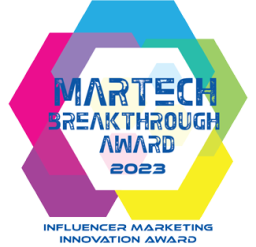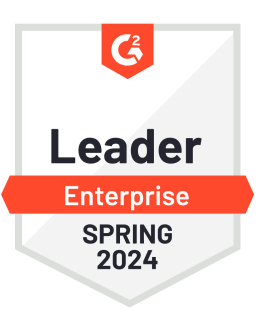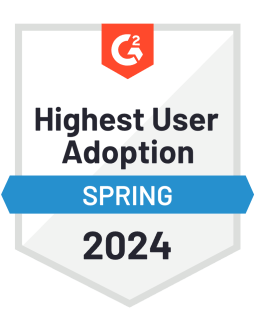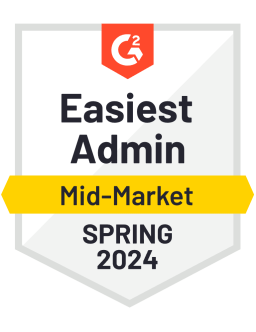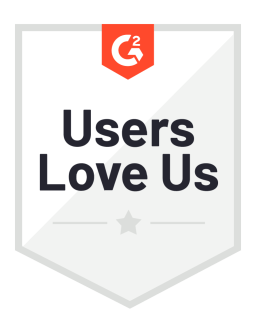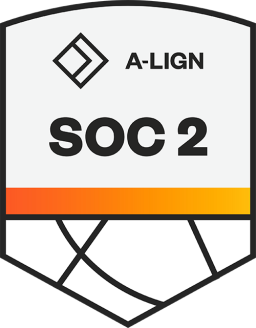We learned and grew a whole lot last year, and we’re ready to tackle what’s coming to social media marketing. And the predictions have been rolling in.
As we dive into strategy discussions and content planning, we believe that now more than ever, marketers who smartly deploy marketing technologies will continue to be one step ahead of those who rely on a do-it-yourself approach.
Artificial intelligence (AI) is a big one, and there’s a reason. It helps marketers widen their scope of analysis and unify their insights to make great decisions, faster. As we confront the ever-growing challenges in the social marketing space, AI is definitely not a buzzword, but a valuable asset. So, what does AI in digital marketing actually do for marketing teams? What’s the big deal?
Here, we’ll explore how AI helps in marketing, highlighting its added value in key areas of a marketing strategy for some of our most data-driven clients.
What Is AI in Marketing?
Simply put, AI-based marketing is the use of machine learning and AI-powered systems to complement strategic decision-making. AI systems complete complex calculations and provide recommendations based on what they learn from data, and how they’ve been taught to process it.
Socialbakers AI, specifically, uses both supervised and unsupervised learning processes along with algorithms fed with structured and unstructured data to create an agile, industry-leading system. Technical descriptions aside, what’s the draw of AI-based marketing?
The pace of marketing can often be overwhelming; there’s just so much to do. Marketers need all the support they can get to work faster and smarter. When marketers rely on a manual DIY approach or outdated processes, there’s little time left for innovation and growth. For teams who want to change the way they do marketing, AI offers what they need.
How Does AI Work?
AI automates tedious day-to-day tasks
AI in the marketing industry helps large teams with complex structures significantly scale processes, keeping them unified and organized
AI guides marketers by using their own data more quickly
AI analyzes patterns and provides recommendations on large amounts of data, which allows marketers to make fast and strategic decisions throughout entire content strategy lifecycle
AI does more with your data to improve complex decision-making
AI helps marketers see beyond social media API limitations without privacy violations or shady data scraping, so that they can do more with their valuable data assets
6 AI in Marketing Examples That Impact the Entire Customer Journey
So now you have a general idea of what AI can do and why it's important. But to take full advantage of this powerful tool it's important to look at specific use cases and examples to see the real impact.
1. How AI in Marketing Helps You Get to Know Your Audiences
Great content starts with knowing who to target with your message, and what even to say. When you know your audience, connection feels more natural, allowing your brand to build lasting and loyal relationships. Content quality and authenticity are critical areas where the future of AI in marketing will deliver the most impact.
The DIY approach to mapping audience demography
Many marketers have access to some kind of data about their fans and followers, such as where they’re located and what languages they speak. This knowledge is discovered by aggregating likes, who’s been reached, and who’s engaged with a profile, sorted by country/city, gender, age, and language.
What’s the takeaway from this data? A surface understanding of an audience associated with a certain profile. From there, marketers can shape their content based on a general demography split. This is a more basic, but useful, first step towards content relevance. If this is your current approach, you’re ahead of those brands who still rely on difficult or manual research methods – or worse, churn out generic messages across profiles and platforms.
AI jumps in to instantly define buyer personas
To create scroll-stopping content and personalize your approach, it’s great if you can go beyond more simple profiles. Here’s where AI in digital marketing comes in. AI helps marketing teams discover marketing personas, or buyer personas, and their interests. In Socialbakers’ platform, these personas are auto-generated by AI to deliver more holistic audience segmentation in the form of easy-to-read, easy-to-action insights.
Estée Lauder, a giant in the beauty industry, underscores the importance of marketing personas in their campaigns. Ghislain Labay, Head of Social Media France, Estée Lauder Companies, states, “Going beyond data given by analytics, it helps us to tell inspiring, human-centric stories.”
With quality insights, marketers across all industries can keep audiences at the core of their decisions to create unique, relevant content, target posts precisely, and even select the most trustworthy influencers to deliver an integrated brand experience.
2. How AI in Marketing Improves How You Work With Influencers
The influencer marketing craze is still growing – as is the need for authentic content. Spending on influencers is expected to surpass $9B annually in 2020. But having an interest in influencer marketing is quite different from successfully pulling it off. The search and selection process alone can take a ton of time. This we know.
Using AI, marketers can make searching for one easier. By far the most important aspect of this modern tech is the layer of fraud detection it can offer, helping marketers skip the pain of a poor match.
The DIY approach for detecting fake influencers
Many marketers have access to data that can reveal their most popular followers. These active community members, naturally, have the potential to become loyal brand advocates, which is an asset to any marketer. But finding the right influencers? Both the task and the risk grows.
Searching for influencers manually by hashtag or analysis of user-generated content can be difficult in terms of the sheer volume, with little payoff or guarantee. And even when you do find a handful of interesting candidates, to do proper due diligence for each one means wading through endless data on engagement, follower count, content, brand mentions, and more. It’s no wonder fake influencers continue to fly under the radar.
AI jumps in to handle authentic and trustworthy influencer discovery
For fast and accurate influencer discovery that prioritizes authenticity and trust, AI can jump in.
Socialbakers AI recognizes more than 27 million micro and macro influencers, providing users a data-driven look at influencer performance across social channels – all in one place.
The AI-based search engine displays the highest quality influencer choices first, deprioritizing or completely filtering out bots and less desirable choices altogether. A search function and a screening process in one fell swoop? AI is the ultimate assistant.
With the selection process streamlined using AI, teams can spend time on strategic influencer initiatives: deploying brand awareness campaigns to connect with audiences beyond branded profiles. One retail client we work with took the AI for a ride, discovering a sizable difference between their agency’s shortlist of influencers and the ones our platform surfaced. The Socialbakers list of influencers posted 40% less than the agency’s influencers, yet earned an average of 48% more interactions per 1,000 followers.
For additional influencer insights into private metrics like reach and impressions, Socialbakers also provides a direct and transparent data sharing function, right in the platform. To complement the AI search engine, brands and influencers together can agree on exactly what data will be viewable, creating a fulfilling working partnership based on legitimate data sharing practices.
3. How AI in Marketing Increases Content Visibility Through Scheduling
Creating relevant content is half the battle. Marketers need to make sure the right people see it, too. Selecting the right time to post has always been a struggle. If marketers don’t have the data to make this decision, even the best content can go to waste. Here’s where AI and marketing are a perfect pair.
The DIY approach to publishing content
Marketers who pay attention to their historical data can make better decisions about content scheduling compared to those who don’t. To make better publishing choices, start by checking in on your total number of posts, comments, and questions by day of the week and time of day.
This way, you can learn, generally, the best time to post. From there, it’s all about experimenting with that time and making adjustments as necessary. The outcome? You can start saving the time slot that has the highest number of potential interactions for your most important pieces of content.
AI jumps in with content scheduling recommendations
You’ve conquered the tough stuff: creating resonating content for your audiences. Publishing should be a relief, not another complex process. To make sure that’s the case, marketers can use AI for content scheduling recommendations, based on their own audience’s behavior. AI goes beyond historical data, adding more layers to the algorithm: historically the best time to publish, user activity, and users being online.
Socialbakers AI publishing recommendations come in two forms. The first is a visual heatmap of suggested hours and weekdays to post content to reach maximum organic exposure. The heatmap also includes information about missed impressions when posting outside the recommended time.
Content scheduling recommendations are also accessible directly in the content publisher and calendar; simply select what’s called the PrimeTime when scheduling content, and posts will go out right when they should.
Social Keepers, an agency working primarily with public figures and influencers, leverages AI throughout their marketing workflow, facing challenges characteristic of agency and client relationships: How to connect with different audiences across many profiles, create customized strategies, and analyze results to retain clients.
A Digital Account Manager for the agency, Beya Jemaa, uses PrimeTime for each client with, stating: “Knowing the exact best time to post for all our different clients helps us reach the maximum amount of our target audiences.” By managing and monitoring publishing with Socialbakers, the agency ensures better results.
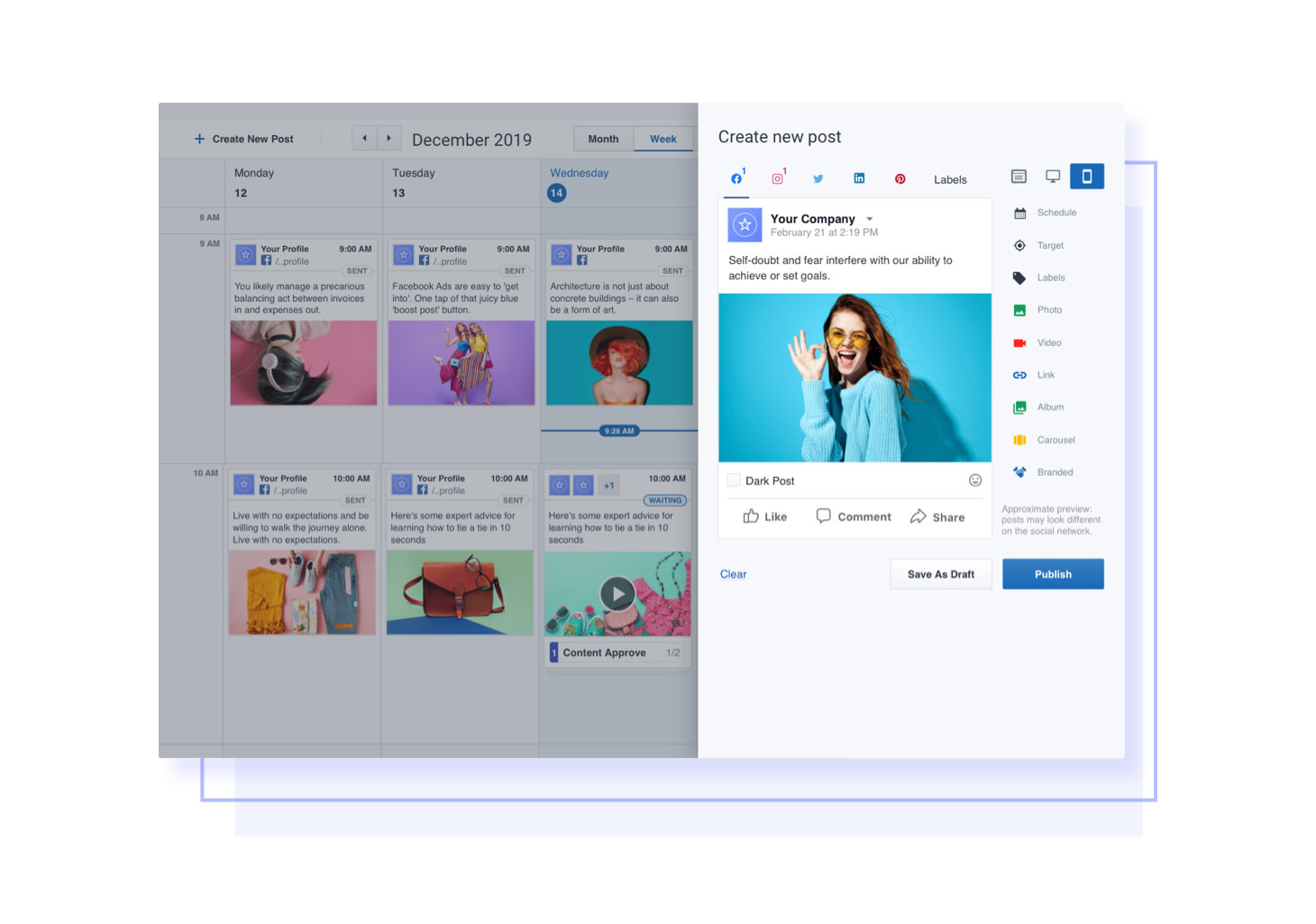
4. How AI in Marketing Helps You Invest in Quality Content
According to the 2019 World Media Group Research Report, 78% of marketers believe that content-led marketing campaigns will continue to grow over the next two years. Though not every post is going to be a smash hit, smart marketers can spot patterns across their best-performing content and use this insight to improve their content-led strategies.
The DIY approach to identifying engaging posts
Many marketers track the best performing content using publicly available data, private insights, and even groups of posts for a complete view on content performance. If you can monitor the social media metrics that matter in one place, even better. Speed and access are key differentiators for effective analysis across different platforms and allows teams to make thoughtful decisions in the shortest amount of time.
For teams who create content across many profiles and platforms, this need only grows. And if your teams are spending too much time collecting and collating data by doing it the manual way, you may miss the window to promote a post and maximize engagement.
AI jumps in to analyze content performance on a larger scale
AI marketing ensures that content intelligence is even more intelligent, automated, and accurate. Using AI in marketing initiatives, you can get immediate insight into your best performing content to optimize spend and increase engagement, before it’s too late.
Marketers can use AI to monitor personalized content benchmarks and gauge their progress. Socialbakers AI uses content grades from A+ to D to make the analysis straightforward and user-friendly. Based on historical data analysis, every organic post is assigned a grade by the algorithm. The evaluation is based on the post’s potential performance, decided by learned patterns and AI.
Grades for competitor and influencer content are available too, providing a wider perspective on trends and flops. With content grading, it’s much easier to capitalize on important themes, topics, or content formats to get greater engagement.
La Redoute, the #1 ranked French ecommerce site for apparel and home decor, uses content intelligence as a major part of their social content strategy. With AI, La Redoute has been able to create more engaging content to not only exceed their KPIs but also increase sales.
Anna Faure, Head of Social Media at La Redoute, stated, “With Socialbakers, we’ve been able to drive greater intention to buy and grow the conversion rate from our campaign Les Préférés by 40%. Socialbakers’ integrated content intelligence helped us achieve these results, enabling us to create more engaging, relevant content for audiences.”
Content intelligence makes spotting the best content super simple, but it can also reveal patterns in engagement – a hot topic for your next creative planning session across marketing teams. As Stacy Martinet, Vice President of Marketing Strategy and Communications at Adobe, noted in Adobe’s 2019 Trends report: “Companies that integrate data and creativity in their day-to-day practices actually drive 2x the growth of companies that have those capabilities but manage them separately.” The benefits here are clear.
Are you smarter than Socialbakers AI? Watch the video and play along with our experts as they try to beat the algorithm in this content quality guessing game.
5. How AI in Marketing Brings Content Insights to the Next Level
Staying on top of what’s happening in the industry is part and parcel of a holistic marketing plan. What are other brands in your space doing, and doing better than you? Knowing your audience overlap, discovering what’s resonating right now, and learning from the industry’s highs and lows allows you to better position your brand to deliver exceptional content.
The DIY approach to running industry analysis
For many brands, market intel is part of the routine day-to-day. Monitoring your brand’s content in the wider landscape helps provide a clear understanding of your own strengths and weaknesses. With this insight, you can improve content performance and deliver on the most important social KPIs.
This process could be a time sink or a quick and useful daily check-in, depending on your setup. For analysis to be timely and actionable, integrating all publicly available data into easy-to-read comparisons is recommended. With access to the big picture, it’s easier to pinpoint where you stand and set better competitive goals.
AI jumps in to provide insights beyond raw data
AccorHotels illustrates just how necessary it is to keep all insights organized. Sana Achaoui, Director, Social Media & Brand Content - Luxury & Premium Brands Accor, states, “It’s vital for us to have a robust analytics structure that allows us to drive the performance of our brand at scale. I monitor more than 200 competitor accounts across social along with our own – this would be impossible to do manually. For each brand, I created a customized dashboard with a set of the most important KPIs. Socialbakers plays a critical role, and definitely makes my life much easier.”
And what about the insights across the board, including paid social media marketing? In its recent 2019-20 CMO spend survey, Gartner reported that 26 percent of the marketing budget is going to paid media. Today, marketers need even more intel to play in this realm successfully. With AI in digital marketing, industry knowledge can go even more in-depth.
Socialbakers AI, in this case, helps with all types of analysis. One interesting use case helps marketers detect whether another brand’s post is organic or promoted. By tracking a post’s behavior in time (how dynamically, and in what way it was gaining interactions) and comparing it to the usual behavior of promoted content, the AI can actually decide if the behavior is typical for a promoted post.
With that, it’s easier to answer key questions: Which brands in my industry are investing in social? What content are they promoting, and when? How well is content performing? This bonus insight can tip the scales when justifying budget increases to stakeholders, or even allows for some bragging rights about how much smarter your spending is in your market.
6. How AI in Marketing Provides Insight Into How Audiences Feel
Content relevance and how audiences feel about your brand go hand in hand, heart in heart. If you continually serve content that’s not useful, interesting, or relevant, audiences may develop more negative feelings about your brand. Having a system in place to detect and respond to one-off dramas compared to negative waves helps you manage concerns about brand loyalty before they grow. After all, brand reputation is one of your most important assets.

The DIY approach to flagging sentiment manually
Marketing teams may rely on community managers to manually track sentiment on the comments they receive – a tedious process that’s impossible to scale without AI. Trained community managers have to evaluate the connotation of every comment, positive, negative, and neutral, based on internal best practices, brand guidelines, or their own experience.
While having this dimension allows brands to see trends in feelings toward the brand or a particular campaign, it’s too much work and nearly impossible to keep accurate without AI. For marketers who deeply value sentiment as an integral part of the content strategy, there needs to be a more reliable approach.
AI jumps in to catch crisis patterns in your community
For large-scale operations, sentiment analysis and community management need to be speedy and personalized to be useful. Using AI, marketers can easily track how audiences feel about content, measuring all communication as it comes in with an automated approach.
Socialbakers AI is specifically taught to recognize sentiment on the smallest phraseological pieces, including comments and direct conversations. It’s constantly learning to evolve its vocabulary. AI-driven sentiment analysis is competitive to human perception with up to 80% accuracy, allowing access to insights on massive amounts of information without delay.
With AI in play, marketers can focus on what’s important and take the right action as soon as possible. Take Tune Talk as an example. With stellar community management, Tune Talk, the fastest growing Mobile Virtual Network Operator (MVNO) in Malaysia, stands out in the crowd.
For them, it’s all about serving meaningful content and engaging in discussions with every follower. Fara Hasan, Head of Communications and Content at Tune Talk Sdn Bhd, stated, “With Socialbakers we can conveniently reach out to customers, especially existing ones, making them feel more appreciated and, inevitably, increase their brand loyalty. Socialbakers helps in our mission to deliver barrierless, deep personal connections – not only with our current customers, but also potential users.”
And what was the result of having a dedicated, audience-first approach? They earned a +341% increase in the Love reaction on Facebook from 2018 to 2019.
The Future of AI in Marketing
The decisions marketers face daily are enough to make heads spin. The 2020 digital space is filled with new opportunities, trends, and challenges. For some marketing teams, a DIY approach based on calculated data can answer some of their most pressing questions. But when that edge is needed to dig deeper and scale work efficiently, AI-based marketing in a unified platform is the way forward.
In 2020 and beyond, how AI helps in marketing is clear. It will support the most ambitious goals of marketers who are ready and willing to get the most from their data assets, do marketing differently, and make a real impact on their audience’s lived online experience.
AI is vital to the future of marketing, but find out what else are top marketers prioritizing in 2020.
Editor's Note: This article was originally published on socialbakers.com. Any statistics or statements included in this article were current at the time of original publication.















